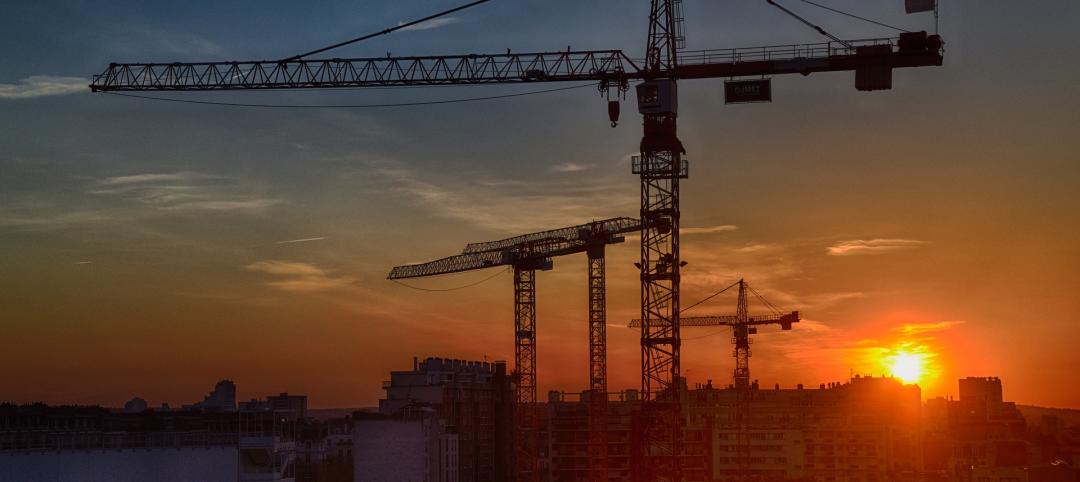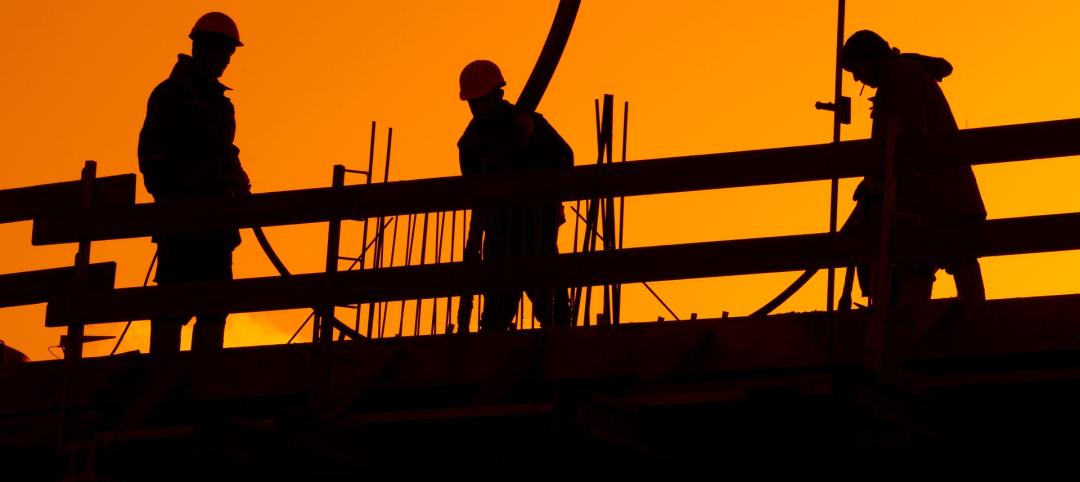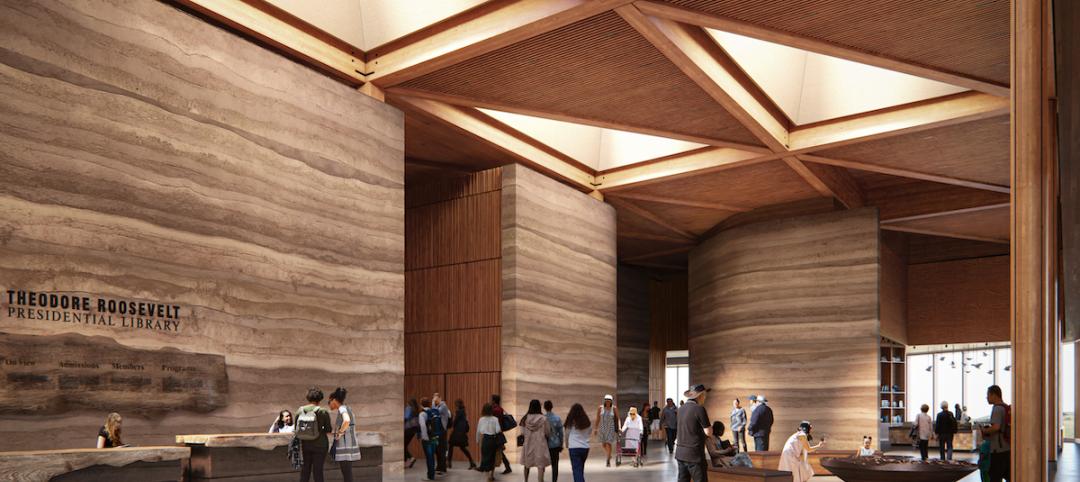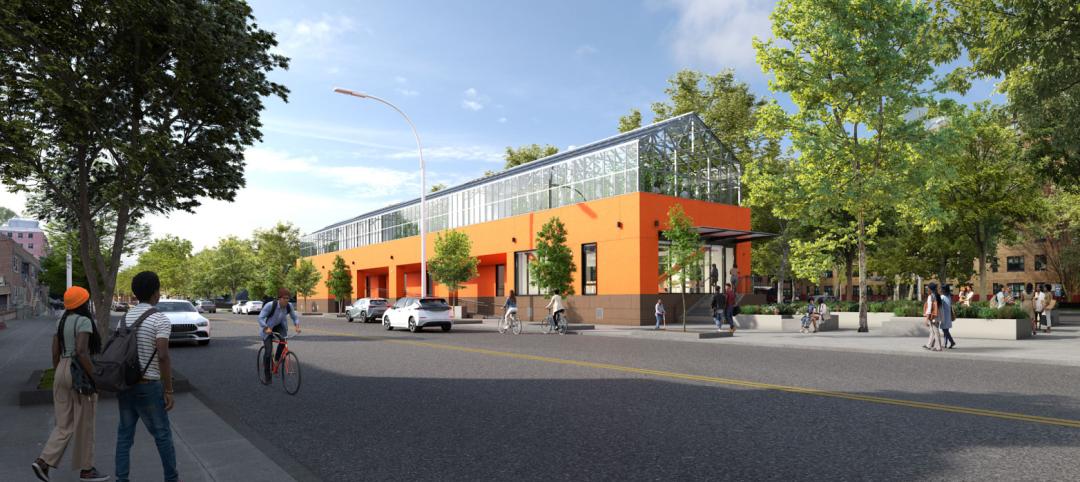The American Society of Civil Engineers estimates that the United States needs to spend $3.6 trillion by 2020 just to bring the country’s infrastructure back to a level described as adequate.
A new report by Transwestern, a privately held real estate firm, makes a case that investing in infrastructure can also be beneficial to surrounding commercial real estate. Called “Cranes and Lanes,” the report identifies major infrastructure projects in nine markets, and describes how the projects are impacting—or are likely to impact—the larger built environment.
“Cities have recognized that in order to stay competitive and generate economic development, the city’s infrastructure must keep up,” adds Brian Landes, a GIS expert and the report’s author. “While projects analyzed in the report run the gamut from new stadiums to reworked interchanges to entirely new districts, they do have one thing in common: a relatively certain boost in rents and occupancy.”
Several of the projects cited revolve around transit, such as the ongoing Modernization Project at Chicago’s O’Hare Airport, which Transwestern sees as a “catalyst for economic growth and job creation.” But there are a number of nonresidential building projects that are also expected to lead to ancillary development and construction.
Examples include:
• SunTrust Park, the new stadium for Major League Baseball’s Atlanta Braves designed by Populous, which should be completed next year. Transwestern says this stadium will bring with it a $400 million shopping, dining and entertainment district, as well as a new Omni Hotel and a 300,000-sf office building that Comcast will occupy.
• Seaport Square is a new neighborhood created from 23 acres of undeveloped land in South Boston’s emerging Seaport District. When it’s completed next year, it will encompass 2.75 million sf of residential, 1.25 million sf of office, 1.25 million ft of retail, 800,000 sf of hotels, 265,000 sf of cultural and civic space, and 2.25 million sf of parking. “The district will spur an evolution of Downtown Boston and shift the commercial center to the south and east,” the report states.
• Hudson Yards is the redevelopment of a vacant former industrial neighborhood along the West Side of Manhattan in New York City. It traces its roots to a 2005 rezoning aimed to transition the area into an extension of the Midtown business district. The project will eventually feature 6 million sf of office, 750,000 sf of retail, 5,000 apartments, 2 million sf of hotel and 14 acres of public space. Completion 2018.
• In San Francisco, Transbay District is currently under development. It will eventually house an intermodal transportation destination and 6 million sf of new office space. The new transit center will house three transportation options: (1) Caltrain will extend its terminus further downtown into the Transbay Transit Center; (2) The center will be the terminus for the future California High Speed Rail Line; and (3) the center will be the hub for regional bus service. Amidst the office build-out will be Salesforce Tower, the corporate headquarters for Salesforce and the second tallest building in the Western U.S. Completion 2020.
• Oakland Global Trade & Logistics Center will sit adjacent to the Port of Oakland on an Army base decommissioned in 1999. The project will bolster the West Coast’s third-largest port by adding an intermodal rail hub, additional railyards, a bulk terminal and more than 1 million sf of warehouse and distribution space. The project, which should be done next year, comes at an important time for the Port of Oakland, which moved nearly 2.3 million containers in 2015 and whose volume is expected to grow in the coming years.
Related Stories
Codes and Standards | Jun 17, 2024
Federal government releases national definition of a zero emissions building
The U.S. Department of Energy has released a new national definition of a zero emissions building. The definition is intended to provide industry guidance to support new and existing commercial and residential buildings to move towards zero emissions across the entire building sector, DOE says.
Multifamily Housing | Jun 14, 2024
AEC inspections are the key to financially viable office to residential adaptive reuse projects
About a year ago our industry was abuzz with an idea that seemed like a one-shot miracle cure for both the shockingly high rate of office vacancies and the worsening housing shortage. The seemingly simple idea of converting empty office buildings to multifamily residential seemed like an easy and elegant solution. However, in the intervening months we’ve seen only a handful of these conversions, despite near universal enthusiasm for the concept.
Healthcare Facilities | Jun 13, 2024
Top 10 trends in the hospital facilities market
BD+C evaluated more than a dozen of the nation's most prominent hospital construction projects to identify trends that are driving hospital design and construction in the $67 billion healthcare sector. Here’s what we found.
Affordable Housing | Jun 12, 2024
Studio Libeskind designs 190 affordable housing apartments for seniors
In Brooklyn, New York, the recently opened Atrium at Sumner offers 132,418 sf of affordable housing for seniors. The $132 million project includes 190 apartments—132 of them available to senior households earning below or at 50% of the area median income and 57 units available to formerly homeless seniors.
Contractors | Jun 12, 2024
New hire strengthens Kraus Anderson's relationships with design-architects
Nate Enger, the firm’s second design phase services manager, has worked on both sides of the designer-contractor fence.
Contractors | Jun 12, 2024
The average U.S. contractor has 8.3 months worth of construction work in the pipeline, as of May 2024
Associated Builders and Contractors reported that its Construction Backlog Indicator fell to 8.3 months in May, according to an ABC member survey conducted May 20 to June 4. The reading is down 0.6 months from May 2023.
Lighting | Jun 10, 2024
LEDs were nearly half of the installed base of lighting products in the U.S. in 2020
Federal government research shows a huge leap in the penetration of LEDs in the lighting market from 2010 to 2020. In 2010 and 2015, LED installations represented 1% and 8% of overall lighting inventory, respectively.
Contractors | Jun 7, 2024
First-in-nation law requires contractors to pay prevailing wage for subsidized housing projects in Minnesota
Minnesota recently adopted a first-in-nation law that requires contractors to pay prevailing wage for subsidized housing projects in the state. This action makes Minnesota the first state in the nation to mandate prevailing wages on projects funded by federal Low-Income Housing Tax Credits (LIHTC).
Libraries | Jun 7, 2024
7 ways to change 'business as usual': The Theodore Roosevelt Presidential Library
One hundred forty years ago, Theodore Roosevelt had a vision that is being realized today. The Theodore Roosevelt Presidential Library is a cutting-edge example of what’s possible when all seven ambitions are pursued to the fullest from the beginning and integrated into the design at every phase and scale.
Education Facilities | Jun 6, 2024
Studio Gang designs agricultural education center for the New York City Housing Authority
Earlier this month, the City of New York broke ground on the new $18.2 million Marlboro Agricultural Education Center (MAEC) at the New York City Housing Authority’s Marlboro Houses in Brooklyn. In line with the mission of its nonprofit operator, The Campaign Against Hunger, MAEC aims to strengthen food autonomy and security in underserved neighborhoods. MAEC will provide Marlboro Houses with diverse, community-oriented programs.
















